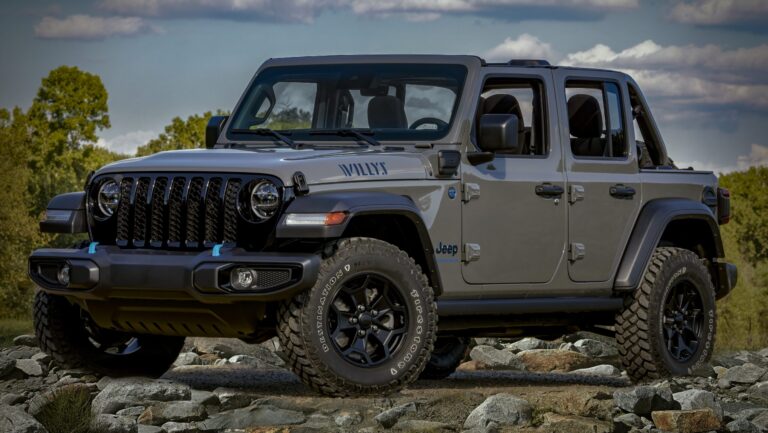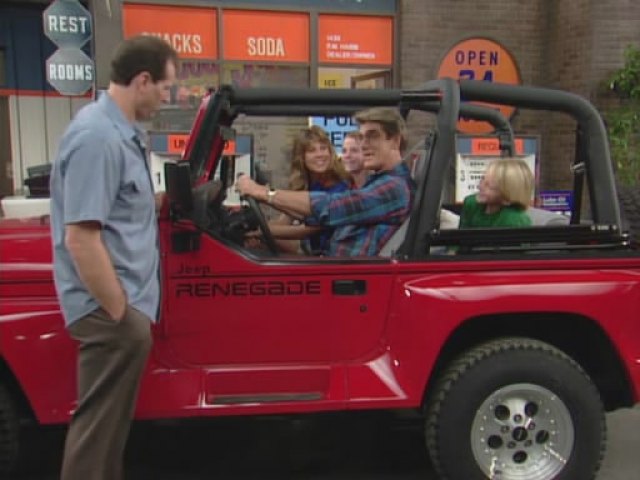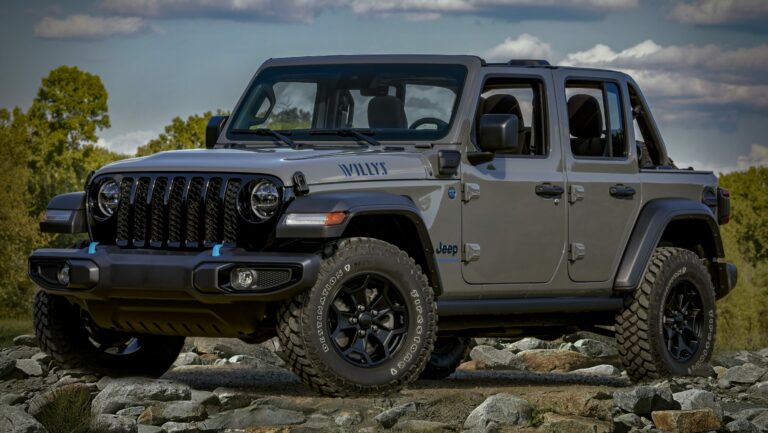How Much Does It Cost To Replace Jeep Wrangler Engine?
How Much Does It Cost To Replace Jeep Wrangler Engine? jeeps.truckstrend.com
The iconic Jeep Wrangler, with its unparalleled off-road capability and adventurous spirit, holds a special place in the hearts of its owners. It’s a vehicle built for rugged terrain and open-air freedom. However, like any complex machine, a Jeep Wrangler’s engine can, over time, face significant issues or even catastrophic failure. When that happens, the daunting question arises: "How much does it cost to replace a Jeep Wrangler engine?" This isn’t a simple question with a single answer, as the cost can vary dramatically based on numerous factors. Understanding these variables is crucial for any Jeep owner facing this significant investment, helping them make an informed decision and get their beloved Wrangler back on the trail.
Replacing a Jeep Wrangler engine is one of the most substantial repairs an owner can undertake, often rivaling the value of the vehicle itself, especially for older models. This comprehensive guide will break down the costs involved, explore the different options available, and provide practical advice to navigate this complex and costly process.
How Much Does It Cost To Replace Jeep Wrangler Engine?
Why Replace Your Jeep Wrangler Engine? Recognizing the Signs
Before diving into costs, it’s important to understand why an engine replacement might be necessary. While minor issues can often be repaired, certain problems signal the end of an engine’s life, making replacement the more practical or only option.
Common signs of severe engine damage or impending failure include:
- Loud Knocking or Ticking Noises: Often indicative of worn bearings or internal component damage.
- Excessive Smoke from the Exhaust: Blue smoke suggests oil burning, while white smoke can indicate a blown head gasket or coolant leak into the combustion chamber.
- Significant Oil Consumption: Needing to add oil frequently, far beyond normal usage.
- Major Fluid Leaks: Large puddles of oil, coolant, or other fluids under the vehicle.
- Loss of Power and Poor Performance: Engine struggling to accelerate, misfiring constantly, or feeling sluggish.
- Engine Seizure: The engine completely locks up and won’t turn over.
- Check Engine Light with Critical Codes: Codes indicating severe internal engine problems (e.g., P0300 series for misfires across multiple cylinders, or codes related to internal component failure).

In many cases, the cost of repeatedly repairing these issues or addressing a major internal failure can quickly exceed the cost of a full engine replacement, making a swap the more economically sound long-term solution.

Understanding the Core Components of Engine Replacement Cost
The total cost to replace a Jeep Wrangler engine is a sum of several key elements: the engine unit itself, labor costs, and the price of ancillary parts and fluids. Each of these components has its own set of variables.
1. The Engine Unit Cost: New, Remanufactured, or Used?
The type of engine you choose is the single biggest determinant of the overall cost.
-
Used/Salvage Engines:
- Pros: This is the cheapest option. You might find a used engine from a wrecked vehicle with relatively low mileage.
- Cons: Comes with the highest risk. There’s no guarantee of its history, internal condition, or how long it will last. Warranties, if offered, are usually very limited (e.g., 30-90 days). You could be buying someone else’s problem.
- Cost Range: Typically $1,500 – $4,000, depending on the engine type (e.g., 2.0L Turbo, 3.6L Pentastar, 3.8L, 4.0L), mileage, and availability.
-
Remanufactured/Rebuilt Engines:
- Pros: A popular choice for balancing cost and reliability. These engines have been disassembled, inspected, and had worn or damaged parts replaced (e.g., pistons, rings, bearings, gaskets, seals). They are then reassembled to factory specifications. Reputable remanufacturers offer warranties, often 1-3 years or 12,000-36,000 miles, providing peace of mind.
- Cons: Quality can vary significantly between remanufacturers. It’s crucial to choose a reputable company.
- Cost Range: Generally $3,000 – $6,500, depending on the specific engine and the remanufacturer.
-
New Crate Engines (OEM or Aftermarket):
- Pros: The most reliable option, offering a fresh start with zero miles and a comprehensive manufacturer’s warranty (often 3 years/36,000 miles or more). You’re getting a brand-new engine, often identical to what came in the vehicle from the factory.
- Cons: The most expensive option.
- Cost Range: Typically $5,000 – $9,000+, with some high-performance or diesel engines costing even more.

The specific Jeep Wrangler engine (e.g., 4.0L inline-six for TJ/YJ, 3.8L V6 for early JKs, 3.6L Pentastar V6 for later JKs/JLs, 2.0L Turbo for JL, 3.0L EcoDiesel for JL) will also significantly impact the unit cost due to availability and manufacturing complexity.
2. Labor Costs: Who Installs It?
Engine replacement is a labor-intensive job requiring specialized tools and expertise. Labor rates vary widely based on location, shop type, and the complexity of the specific Wrangler model.
-
Independent Mechanics/Specialty Shops:
- Pros: Often have lower hourly rates than dealerships and may specialize in Jeeps or off-road vehicles. They can offer a more personalized service.
- Cons: Quality and expertise can vary. Ensure they have experience with engine swaps and good reviews.
- Hourly Rate: Typically $100 – $150 per hour.
- Total Labor Hours: An engine replacement can take anywhere from 15 to 30 hours, depending on the vehicle generation and whether complications arise.
- Estimated Labor Cost: $1,500 – $4,500.
-
Dealerships:
- Pros: Factory-trained technicians, specialized tools, and genuine OEM parts. They often offer a comprehensive warranty on parts and labor.
- Cons: Highest hourly rates.
- Hourly Rate: Can range from $130 – $200+ per hour.
- Estimated Labor Cost: $2,500 – $6,000+.
3. Ancillary Parts and Fluids
Beyond the engine block itself, numerous other components, gaskets, seals, and fluids must be replaced during an engine swap. These "incidentals" can add a significant amount to the final bill.
-
Essential Components:
- New gaskets and seals (e.g., intake manifold, exhaust manifold, valve cover, oil pan).
- New spark plugs and ignition coils (often recommended).
- New fluids: engine oil, coolant, transmission fluid (if draining/refilling), power steering fluid, A/C refrigerant.
- Filters: oil filter, air filter.
- Belts and hoses: serpentine belt, radiator hoses, heater hoses.
- Estimated Cost: $500 – $1,000.
-
Optional/Recommended Replacements:
- Motor Mounts: Often worn and should be replaced with a new engine to prevent vibrations.
- Clutch Kit (Manual Transmission): It’s highly advisable to replace the clutch, pressure plate, and throw-out bearing while the engine is out.
- Torque Converter (Automatic Transmission): Inspection and potential replacement may be recommended.
- Sensors: O2 sensors, camshaft/crankshaft position sensors, etc., especially if the old ones are failing or compromised.
- Exhaust Components: Catalytic converters or exhaust pipes might need attention if rusted or damaged during removal.
- Radiator/Water Pump: If old or showing signs of wear, replacing them now saves future labor.
- A/C System Recharge: Necessary after opening the A/C lines.
- Estimated Cost: $500 – $2,000+, depending on what needs to be done.
Factors Influencing the Total Cost
Several other factors can influence the final bill for your Jeep Wrangler engine replacement:
- Geographic Location: Labor rates and parts availability vary by region and even by city.
- Vehicle Year and Model: Older Jeeps (e.g., YJ, TJ) with simpler engines (like the 4.0L) might have lower labor hours but potentially harder-to-find parts. Newer Jeeps (JK, JL) have more complex electronics and tighter engine bays, potentially increasing labor hours.
- Additional Repairs/Upgrades: While the engine is out, it’s a prime opportunity to address other maintenance items or upgrades that would otherwise require significant labor to access (e.g., transmission service, suspension components, steering box).
- Warranty: The length and comprehensiveness of the warranty on both the engine and the labor will factor into the overall cost. A better warranty often comes with a higher price tag but offers greater peace of mind.
DIY vs. Professional Installation
For the vast majority of Jeep owners, a DIY engine replacement is not recommended.
- DIY: While it eliminates labor costs, it requires specialized tools (engine hoist, stand, specialized wrenches), advanced mechanical knowledge, and significant time. The risk of errors leading to further damage or an improperly installed engine is very high. There’s also no labor warranty.
- Professional: Provides expertise, specialized tools, and typically offers a warranty on both the parts and labor. This is the safest and most reliable route for such a critical repair.
Practical Advice and Tips for Saving Money (Without Sacrificing Quality)
- Get Multiple Quotes: Contact at least 3-4 reputable shops (dealerships, independent mechanics, Jeep specialists) to compare prices for the same scope of work (e.g., remanufactured engine with specific warranty).
- Consider a Reputable Remanufactured Engine: This often provides the best balance of cost-effectiveness and reliability with a good warranty. Research engine remanufacturers thoroughly.
- Ask About Parts Sourcing: Some independent shops may allow you to source your own engine or major components if you find a better deal, but discuss their warranty policy on customer-supplied parts.
- Be Transparent About Your Budget: Discuss your financial constraints with the mechanic. They might be able to suggest alternative solutions or prioritize essential repairs.
- Understand the Warranty: Clarify what the warranty covers for both the engine unit and the installation labor. How long is it? What voids it?
- Review the Itemized Estimate: Ensure you understand every line item before authorizing work. Don’t be afraid to ask questions.
- Address Other Issues Concurrently: If other components are nearing their end-of-life (e.g., water pump, thermostat, radiator), it’s often more cost-effective to replace them while the engine is out to avoid future labor charges.
Cost Table: Estimated Jeep Wrangler Engine Replacement Costs
Below is a table summarizing the estimated costs for replacing a Jeep Wrangler engine. These are general ranges and can vary significantly based on the factors discussed above.
| Component/Service | Low Estimate ($) | High Estimate ($) | Notes |
|---|---|---|---|
| Engine Unit Cost | |||
| Used Engine | $1,500 | $4,000 | Highest risk, variable mileage, often limited/no warranty. |
| Remanufactured Engine | $3,000 | $6,500 | Good balance of cost & reliability, typically 1-3 year warranty. Quality varies by rebuilder. |
| New Crate Engine | $5,000 | $9,000+ | Highest reliability, long warranty (OEM or reputable aftermarket). |
| Labor Cost | Based on 15-30 hours of labor. | ||
| Independent Shop | $1,500 | $3,000 | Hourly rates $100-$150. |
| Dealership | $2,500 | $4,500+ | Hourly rates $130-$200+. |
| Ancillary Parts & Fluids | |||
| Essential Components | $500 | $1,000 | Gaskets, seals, hoses, belts, spark plugs, fluids, filters. |
| Optional/Recommended | $500 | $2,000+ | Motor mounts, clutch kit/torque converter, sensors, radiator, water pump, A/C recharge, etc. |
| Total Estimated Cost | Includes Engine Unit + Labor + Ancillary Parts. | ||
| Total (Used Engine) | $3,500 | $9,000 | Lowest initial cost, highest long-term risk. |
| Total (Remanufactured) | $5,000 | $11,500 | Best value, common choice for reliability & warranty. |
| Total (New Crate) | $7,000 | $15,000+ | Highest cost, but longest lifespan and peace of mind. |
Prices are estimates and subject to change based on specific Jeep Wrangler model, engine type, market conditions, and regional differences.
Frequently Asked Questions (FAQ)
Q1: How long does a Jeep Wrangler engine replacement typically take?
A1: The actual labor time can range from 15 to 30 hours. With shop scheduling, parts delivery, and potential unexpected issues, the entire process might take anywhere from 3 days to 2 weeks.
Q2: Should I replace the engine or sell my Jeep Wrangler?
A2: This depends on the vehicle’s overall condition, its sentimental value, and the cost of a replacement engine compared to the vehicle’s market value. If the body, frame, transmission, and rest of the components are in good shape, an engine replacement can significantly extend the life of your Jeep for less than buying a new one.
Q3: What kind of warranty should I expect on a replacement engine?
A3: For remanufactured engines, expect a warranty of 1-3 years or 12,000-36,000 miles. New crate engines often come with a longer warranty, similar to new vehicle warranties (e.g., 3 years/36,000 miles). Used engines usually have very limited warranties, if any (e.g., 30-90 days). Always confirm the warranty details with your mechanic and engine supplier.
Q4: Can I put a different engine (engine swap) in my Jeep Wrangler?
A4: Yes, engine swaps (e.g., putting a V8 into a Wrangler) are popular for off-road enthusiasts. However, this is a highly complex, custom job that is significantly more expensive and requires extensive modifications to the drivetrain, electronics, and potentially the chassis. This is not a standard engine replacement and should only be undertaken by highly specialized shops.
Q5: What’s the difference between a "rebuilt" and "remanufactured" engine?
A5: While often used interchangeably, "remanufactured" generally implies a more thorough process. A remanufactured engine is fully disassembled, thoroughly inspected, machined to precise tolerances, and has all worn or damaged parts replaced with new or reconditioned components to meet original factory specifications. A "rebuilt" engine might only address the specific failed components without a full tear-down and inspection of all parts. Always ask for clarification on the process and warranty.
Q6: How can I prevent engine failure in the future?
A6: Regular, diligent maintenance is key. This includes timely oil changes with the correct type of oil, coolant flushes, air filter replacements, spark plug changes, and addressing any dashboard warning lights promptly. Avoiding extreme off-roading or excessive towing beyond the vehicle’s limits also helps.
Conclusion
Replacing a Jeep Wrangler engine is undoubtedly a significant financial undertaking, but it’s an investment that can breathe new life into your beloved off-roader. By understanding the various cost components—from the type of engine unit (used, remanufactured, or new) to labor rates and ancillary parts—you can approach the repair process with confidence. Obtaining multiple quotes, choosing a reputable mechanic, and understanding the warranty are critical steps to ensure a successful and cost-effective engine swap. While the price tag might seem daunting, for many Jeep enthusiasts, the enduring value, capability, and sentimental attachment to their Wrangler make engine replacement a worthwhile decision to keep their adventure alive for years to come.




